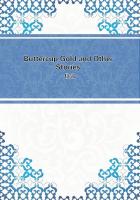Mrs. Martin was early at the schoolhouse the next morning, yet not so early but that she discovered that the new assistant had been there before her. This was shown in some rearrangement of the school seats and benches. They were placed so as to form a horseshoe before her desk, and at the further extremity of this semicircle was a chair evidently for himself. She was a little nettled at his premature action, although admitting the utility of the change, but she was still more annoyed at his absence at such a moment. It was nearly the school hour when he appeared, to her surprise, marshaling a file of some of the smaller children whom he had evidently picked up en route, and who were, to her greater surprise, apparently on the best of terms with him. "Thought I'd better rake 'em in, introduce myself to 'em, and get 'em to know me before school begins. Excuse me," he went on hastily, "but I've a lot more coming up, and I'd better make myself square with them OUTSIDE." But Mrs. Martin had apparently developed a certain degree of stiffness since their evening's interview.
"It seems to me quite as important, Mr. Twing," she said drily, "that you should first learn some of your own duties, which I came here early to teach you."
"Not at all," he said cheerfully. "Today I take my seat, as I've arranged it, you see, over there with them, and watch 'em go through the motions. One rehearsal's enough for ME. At the same time, I can chip in if necessary." And before she could reply he was out of the schoolhouse again, hailing the new-comers. This was done with apparently such delight to the children and with some evidently imported expression into his smooth mask-like face, that Mrs. Martin had to content herself with watching him with equal curiosity. She was turning away with a sudden sense of forgotten dignity, when a shout of joyous, childish laughter attracted her attention to the window. The new assistant, with half a dozen small children on his square shoulders, walking with bent back and every simulation of advanced senility, was evidently personating, with the assistance of astonishingly distorted features, the ogre of a Christmas pantomime. As his eye caught hers the expression vanished, the mask-like face returned; he set the children down, and moved away. And when school began, although he marshaled them triumphantly to the very door,--with what contortion of face or simulation of character she was unable to guess,--after he had entered the schoolroom and taken his seat every vestige of his previous facial aberration was gone, and only his usual stolidity remained. In vain, as Mrs. Martin expected, the hundred delighted little eyes before her dwelt at first eagerly and hopefully upon his face, but, as she HAD NOT expected, recognizing from the blankness of his demeanor that the previous performance was intended for them exclusively, the same eager eyes were presently dropped again upon their books in ****** imitation, as if he were one of themselves. Mrs. Martin breathed freely, and lessons began.
Yet she was nervously conscious, meanwhile, of a more ill-omened occurrence. This was the non-arrival of several of her oldest pupils, notably, the refractory and incorrigible Pike County contingent to whom Sperry had alluded. For the past few days they had hovered on the verge of active insubordination, and had indulged in vague mutterings which she had resolutely determined not to hear. It was, therefore, with some inward trepidations, not entirely relieved by Twing's presence, that she saw the three Mackinnons and the two Hardees slouch into the school a full hour after the lessons had begun. They did not even excuse themselves, but were proceeding with a surly and ostentatious defiance to their seats, when Mrs. Martin was obliged to look up, and--as the eldest Hardee filed before her--to demand an explanation. The culprit addressed--a dull, heavy-looking youth of nineteen--hesitated with an air of mingled doggedness and sheepishness, and then, without replying, nudged his companion. It was evidently a preconcerted signal of rebellion, for the boy nudged stopped, and, turning a more intelligent, but equally dissatisfied, face upon the schoolmistress, began determinedly:--
"Wot's our excuse for coming an hour late? Well, we ain't got none. WE don't call it an hour late--WE don't. We call it the right time. We call it the right time for OUR lessons, for we don't allow to come here to sing hymns with babbies. We don't want to know 'where, oh where, are the Hebrew children?' They ain't nothin' to us Americans. And we don't want any more Daniels in the Lions' Den played off on us. We have enough of 'em in Sunday-school. We ain't hankerin' much for grammar and dictionary hogwash, and we don't want no Boston parts o' speech rung in on us the first thing in the mo'nin'. We ain't Boston--we're Pike County--WE are. We reckon to do our sums, and our figgerin', and our sale and barter, and our interest tables and weights and measures when the time comes, and our geograffy when it's on, and our readin' and writin' and the American Constitution in reg'lar hours, and then we calkilate to git up and git afore the po'try and the Boston airs and graces come round. That's our rights and what our fathers pay school taxes for, and we want 'em."
He stopped, looking less towards the schoolmistress than to his companions, for whom perhaps, after the schoolboy fashion, this attitude was taken. Mrs. Martin sat, quite white and self-contained, with her eyes fixed on the frayed rim of the rebel's straw hat which he still kept on his head. Then she said quietly:--
"Take off your hat, sir."
The boy did not move.
"He can't," said a voice cheerfully.















